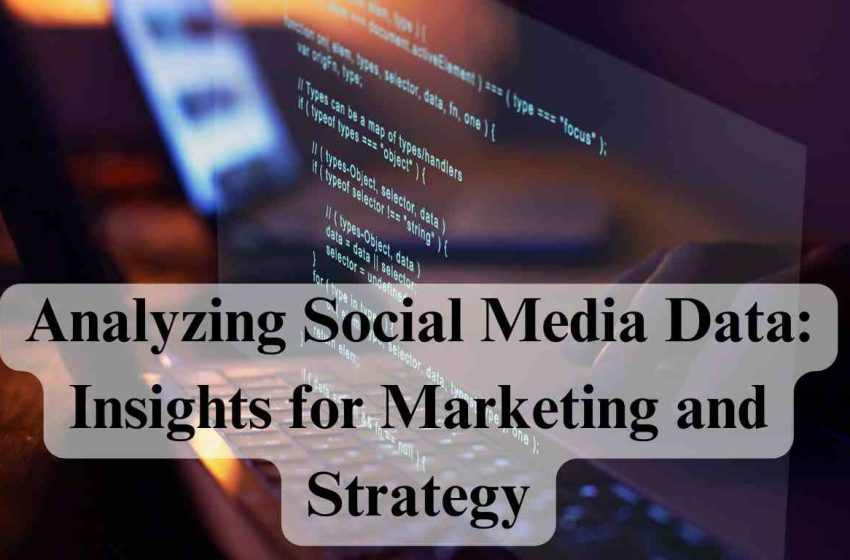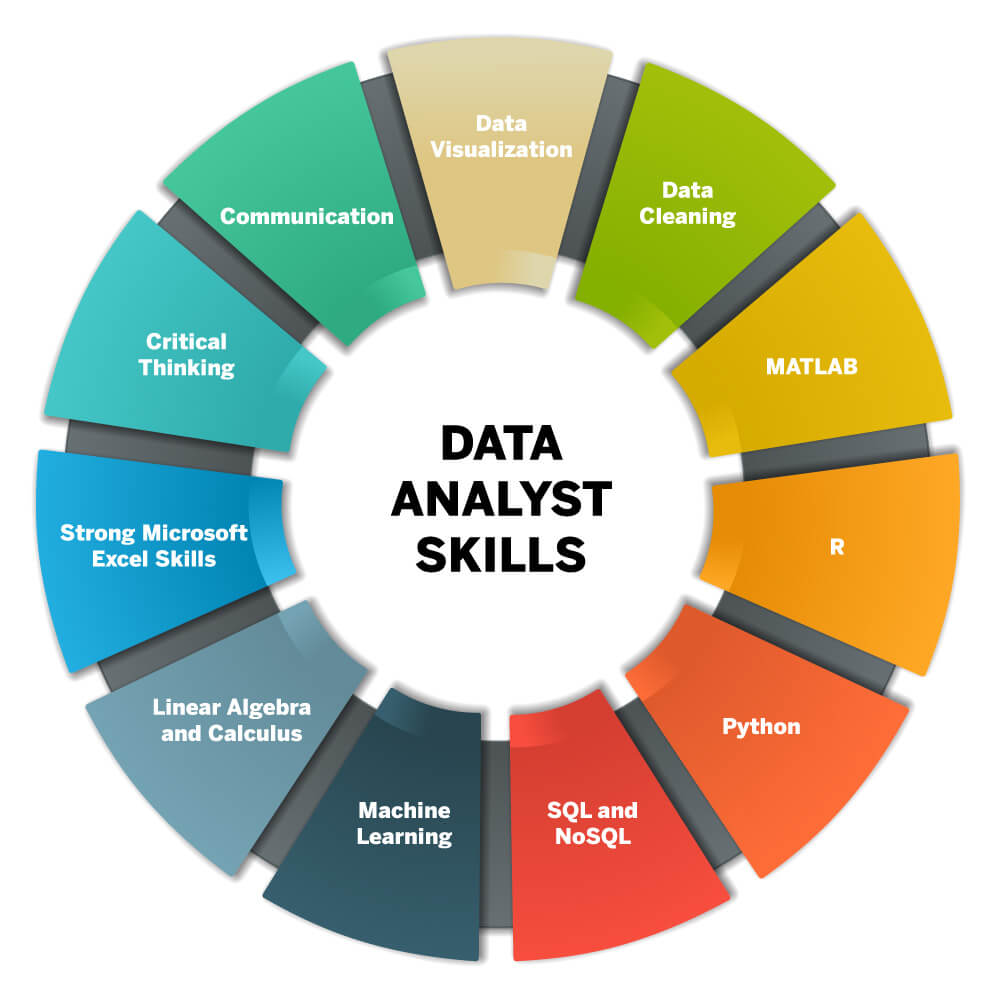Analyzing Social Media Data: Insights for Marketing and Strategy

Introduction
In today’s digital age, social media has become an indispensable tool for businesses to connect with customers, build brand awareness, and drive engagement. The vast amount of data generated on platforms like Facebook, Twitter, Instagram, and LinkedIn presents a wealth of opportunities for marketers and strategists to glean valuable insights. Analyzing social media data allows businesses to understand consumer behavior, monitor brand perception, and refine their marketing strategies in real-time.
Social media data encompasses a variety of information, including user interactions (likes, shares, comments), demographic data, content preferences, and trends. This data is characterized by its volume, velocity, and variety, requiring advanced analytical tools and techniques to derive meaningful insights.
Understanding Social Media Data
Social media data is rich and diverse, offering a multifaceted view of consumer interactions and preferences. It includes both structured data (e.g., user profiles, engagement metrics) and unstructured data (e.g., text, images, videos), providing a comprehensive snapshot of online conversations and behaviors.
The types of data available from social media platforms vary but typically include engagement metrics such as likes, shares, retweets, and comments. These metrics provide quantitative indicators of content popularity and audience engagement levels. Additionally, social media data can capture qualitative insights through sentiment analysis, which assesses the emotional tone of user comments to gauge public perception and brand sentiment.
Analyzing social media data involves employing various tools and techniques, from basic analytics platforms to advanced machine learning algorithms. Tools like Hootsuite and Sprout Social offer capabilities for monitoring social media performance, scheduling posts, and analyzing audience demographics. Advanced techniques such as natural language processing (NLP) enable sentiment analysis, topic modeling, and trend identification, helping marketers understand consumer sentiment and identify emerging topics of interest.
In essence, social media data analysis empowers businesses to uncover actionable insights that drive informed decision-making, optimize marketing strategies, and foster meaningful connections with their target audience. As we delve deeper into this topic, we will explore the tools, techniques, and strategic applications of social media data analysis for marketing and business strategy.
Tools and Techniques for Social Media Analysis
Effective analysis of social media data relies heavily on the use of specialized tools and techniques that can handle the volume and complexity of information available. Here are some key tools and techniques used in social media analysis:
-
Social Media Management Tools: Platforms like Hootsuite, Buffer, and Sprout Social offer comprehensive suites for monitoring social media activity, scheduling posts, and analyzing engagement metrics. These tools provide dashboards that aggregate data from multiple social channels, allowing marketers to track performance metrics and audience demographics in real-time.
-
Sentiment Analysis: Sentiment analysis employs natural language processing (NLP) techniques to categorize opinions expressed in social media content as positive, negative, or neutral. By analyzing user comments, reviews, and mentions, businesses can gauge public sentiment towards their brand, products, or campaigns. This helps in understanding customer perceptions and addressing potential issues promptly.
-
Audience Segmentation: Social media analytics tools enable segmentation of audiences based on demographics, interests, behavior patterns, and engagement levels. Marketers can create personalized marketing campaigns and content strategies tailored to different audience segments, improving relevance and engagement.
-
Trend Identification: Monitoring social media trends allows businesses to stay ahead of industry developments and consumer preferences. Tools like Google Trends, BuzzSumo, and Twitter Trends provide insights into popular topics, hashtags, and viral content, helping marketers capitalize on emerging trends and adapt their strategies accordingly.
Using Social Media Data for Marketing Insights
Social media data serves as a goldmine of information for marketers seeking to understand consumer behavior and optimize their marketing efforts:
-
Customer Insights: Analysis of social media data reveals valuable insights into customer preferences, interests, and purchase behavior. By analyzing interactions and engagement metrics, marketers can identify which content resonates most with their audience and tailor future campaigns to maximize impact.
-
Competitive Analysis: Social media analytics enables businesses to monitor competitors’ activities, benchmark performance metrics, and identify opportunities for differentiation. By analyzing competitor strategies and consumer responses, marketers can refine their own tactics and gain a competitive edge in the market.
-
Campaign Optimization: Real-time analytics allow marketers to track the performance of social media campaigns, measure key performance indicators (KPIs), and adjust strategies on the fly. Insights derived from social media data help in optimizing ad spend, targeting specific audience segments, and improving overall campaign effectiveness.
-
Strategic Decision-Making: Social media analytics informs strategic decision-making by providing data-driven insights into market trends, consumer sentiments, and industry dynamics. By leveraging these insights, businesses can make informed decisions about product development, market positioning, and long-term growth strategies.
In conclusion, social media data analysis is a powerful tool for marketers to gain actionable insights, enhance customer engagement, and drive business growth. By leveraging advanced tools and techniques, businesses can harness the full potential of social media platforms to inform marketing strategies and achieve their business objectives effectively.
Challenges and Considerations
While analyzing social media data offers significant benefits, several challenges and considerations need to be addressed:
-
Data Privacy and Ethics: Handling personal data collected from social media platforms requires compliance with data protection regulations (e.g., GDPR, CCPA). Marketers must ensure ethical use of data and obtain consent for data processing activities.
-
Data Quality and Reliability: Social media data can be noisy and unreliable due to fake accounts, bots, and spam. Ensuring data quality through filtering, validation, and verification processes is crucial to maintain accuracy in analysis.
-
Bias and Interpretation: Interpretation of social media data must consider inherent biases in user-generated content. Biases can skew sentiment analysis and trend identification, leading to inaccurate insights if not properly addressed.
-
Real-Time Analysis and Response: Social media operates in real-time, requiring marketers to analyze data promptly and respond to trends and events quickly. Adopting agile strategies and leveraging real-time analytics tools are essential for effective engagement and crisis management.
Future Trends in Social Media Analytics
The future of social media analytics holds promising advancements and trends:
-
AI and Machine Learning: Integration of AI and machine learning algorithms will enhance social media analytics capabilities, enabling predictive analytics, personalized recommendations, and automated content moderation.
-
Augmented Reality (AR) and Virtual Reality (VR): AR and VR technologies will transform social media experiences, offering immersive content and interactive marketing campaigns. Analytics will play a crucial role in measuring user engagement and optimizing AR/VR content.
-
Cross-Platform Integration: Analyzing data from multiple social media platforms and integrating insights with other data sources (e.g., CRM systems, IoT devices) will provide a holistic view of customer behavior and preferences.
-
Ethical AI and Transparency: There will be a growing emphasis on ethical AI practices and transparency in data handling. Marketers will need to prioritize data privacy, fairness, and accountability in social media analytics processes.
In summary, while social media analytics presents challenges such as data privacy and bias, its evolution with AI, AR/VR, and cross-platform integration promises transformative opportunities. By addressing challenges and embracing future trends, businesses can leverage social media data to drive informed decisions, enhance customer engagement, and achieve strategic goals effectively.
Leveraging Data Analytics Courses
Enrolling in a data analytics course in Delhi, lucknow, goa, Bangalore, etc, equips professionals with the skills needed to harness the power of social media data effectively. Courses provide comprehensive training in data analytics tools, techniques, and methodologies tailored to meet industry demands. Students gain hands-on experience through practical projects and case studies, preparing them to tackle real-world challenges in social media analytics. By integrating knowledge from data analytics courses in Delhi, marketers can refine their ability to interpret social media metrics, conduct sentiment analysis, and identify emerging trends. This enables them to make informed decisions, refine marketing campaigns, and drive business growth through targeted audience engagement strategies.
Conclusion
In conclusion, analyzing social media data using insights gained from data analytics courses in Delhi offers businesses a competitive advantage in today’s digital landscape. Enrolling in a data analytics course in Delhi, lucknow, goa, Bangalore, etc, provides the necessary skills and expertise to navigate complex data environments, ensuring proficiency in data-driven decision-making and strategic planning. As businesses increasingly rely on social media analytics to inform marketing strategies and drive innovation, the demand for skilled professionals trained in data analytics continues to grow. By embracing the opportunities presented by data analytics courses in Delhi, lucknow, goa, Bangalore, etc, professionals can stay ahead of industry trends, capitalize on emerging technologies, and contribute to organizational success through effective social media data analysis.


